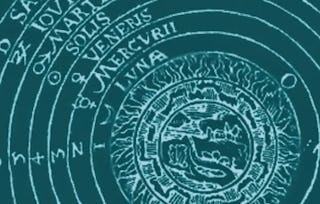This is an introductory level course about the history and philosophy of astronomy, the oldest science. We'll look at how humans learned to ask questions about the universe, and even before the invention of modern instruments like the telescope, learned some amazing things about their place in nature. We will start with prehistoric cultures who kept accurate calendars and move through the time of the Greek philosophers who laid down the rudiments of logic and mathematics and the modern scientific method. We'll then examine the revolutions of Copernicus, Galileo, and Newton that redefined our place in the universe. We will then learn about the revolutions in physics in the early 20th century that redefined our ideas of space and time, mass and energy. Finally, we will discuss how modern cosmology has shown us that we live in an ancient universe (14 billion years old), in one galaxy in a universe of hundreds of billions of galaxies. At the end, will ask questions that don't necessarily have answers. What came before the Big Bang? Is there anything outside our universe? What is reality? We'll finish by looking at the role of life in the universe and ask whether the earth is the only place with biology on it.

Knowing the Universe: History and Philosophy of Astronomy
Ends soon: Gain next-level skills with Coursera Plus for $199 (regularly $399). Save now.

Knowing the Universe: History and Philosophy of Astronomy

Instructor: Chris Impey
6,691 already enrolled
Included with
(43 reviews)
Recommended experience
Skills you'll gain
Details to know

Add to your LinkedIn profile
See how employees at top companies are mastering in-demand skills

There are 8 modules in this course
This module welcomes students to the course and explains the structure and assignments of the class.
What's included
2 videos3 readings2 assignments
What was the Early History of Astronomy? From the Neolithic era to the Classical Greek era, we explore the origins of humanity’s fascination with the night sky and the practical applications of their observations and discoveries.
What's included
12 videos6 assignments1 peer review
In this module we discuss the contributions made to the field of by different civilizations during the Middle Ages. We also explore, with the coming of the Renaissance, how the field of astronomy evolved due to the contributions of Kepler, Brahe, and Galileo.
What's included
14 videos6 assignments1 peer review
The scientific revolution had a far-reaching impact on the field of astronomy. From Kepler’s laws of planetary motion to Newton’s theory of universal gravity, the Golden Age of Science brings with it new tools and methods to understand the universe and our place in it. Additionally, we discuss how the study of the universe gives us insight into the history of our home planet.
What's included
14 videos7 assignments1 peer review
This module explores the creation of different astronomical tools and methods used to observe and gather data from the night sky. We then jump to Einstein, his theory of relativity, and how our modern observations give confirmation to the validity of this theory.
What's included
12 videos6 assignments1 peer review
What are stars? How are they created? How and why do they die? By closely examining atomic theory, the answers to all these questions and more are discussed in this module.
What's included
12 videos5 assignments1 peer review
This module answers the “big questions": how was the universe created, how old is the universe, and will the universe come to and end? Galactic and super-galactic structures are examined as well.
What's included
13 videos6 assignments1 peer review
This module attempts to answer one of humanity’s most pressing questions: are we alone in the universe? Through the discussion of exoplanets and astrobiology, we hope to shed some light on this matter.
What's included
7 videos4 assignments1 peer review
Instructor

Offered by
Explore more from Physics and Astronomy
 Status: Free Trial
Status: Free TrialDartmouth College
 Status: Preview
Status: PreviewThe University of Edinburgh
 Status: Preview
Status: PreviewCaltech
 Status: Preview
Status: PreviewUniversity of Rochester
Why people choose Coursera for their career




Learner reviews
43 reviews
- 5 stars
79.06%
- 4 stars
13.95%
- 3 stars
2.32%
- 2 stars
2.32%
- 1 star
2.32%
Showing 3 of 43
Reviewed on Mar 12, 2024
popularized science, made it so easy for everyone to learn, and motivated to learn more...
Reviewed on Jan 13, 2023
Professor Impey is outstanding in teaching this course, as he displays his generosity to share his amazing knowledge of the astronomy field. Thank you so much for such an enriching experience.
Reviewed on Sep 9, 2025
Excellent delivery, Professor Impey, you've turned this science into an artform. Thank you for your work.

Open new doors with Coursera Plus
Unlimited access to 10,000+ world-class courses, hands-on projects, and job-ready certificate programs - all included in your subscription
Advance your career with an online degree
Earn a degree from world-class universities - 100% online
Join over 3,400 global companies that choose Coursera for Business
Upskill your employees to excel in the digital economy
Frequently asked questions
To access the course materials, assignments and to earn a Certificate, you will need to purchase the Certificate experience when you enroll in a course. You can try a Free Trial instead, or apply for Financial Aid. The course may offer 'Full Course, No Certificate' instead. This option lets you see all course materials, submit required assessments, and get a final grade. This also means that you will not be able to purchase a Certificate experience.
When you purchase a Certificate you get access to all course materials, including graded assignments. Upon completing the course, your electronic Certificate will be added to your Accomplishments page - from there, you can print your Certificate or add it to your LinkedIn profile.
Yes. In select learning programs, you can apply for financial aid or a scholarship if you can’t afford the enrollment fee. If fin aid or scholarship is available for your learning program selection, you’ll find a link to apply on the description page.
More questions
Financial aid available,
¹ Some assignments in this course are AI-graded. For these assignments, your data will be used in accordance with Coursera's Privacy Notice.

